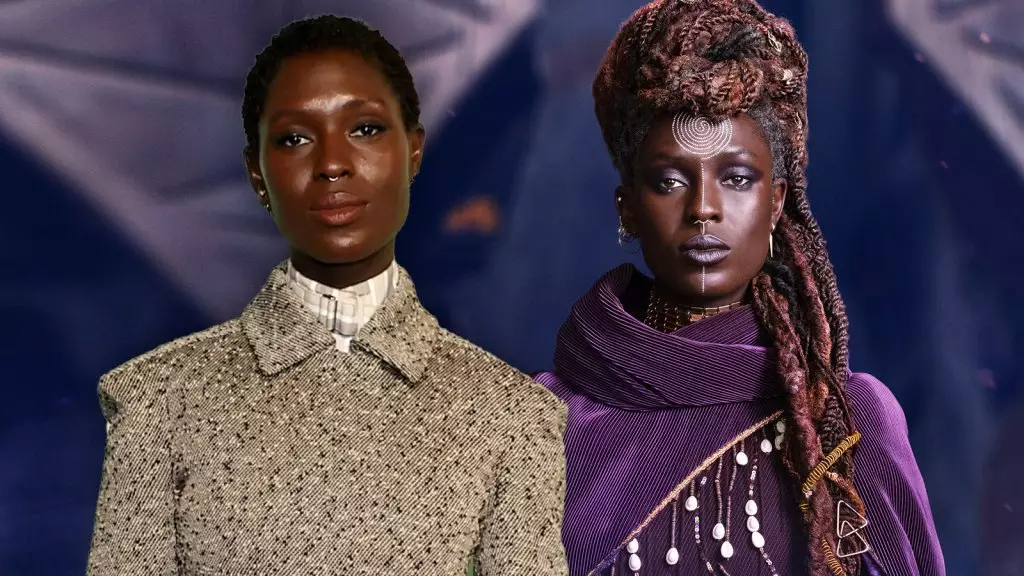In an age where the voices of entertainers resonate across multiple platforms, the responsibility of studios to protect their actors, especially against cyberbullying, is paramount. Jodie Turner-Smith’s recent remarks about Disney’s silence regarding the online harassment faced by her co-star Amandla Stenberg shed light on a critical issue that continues to plague the industry. Turner-Smith, who portrayed Mother Aniseya in the Disney+ series *Star Wars: The Acolyte*, passionately criticized the studio for failing to stand up for Stenberg amidst a storm of vitriolic emails and comments stemming from their casting.
The apparent absence of robust support from Disney raises questions about the company’s commitment to its “family-friendly” values. When actors of color face aggressive backlash, particularly in the form of racism, it is not just a personal issue for the actors involved; it reflects a larger systemic problem in the entertainment landscape. As Turner-Smith emphasizes, the industry must move beyond simply observing these incidents as they unfold on social media. Instead, there needs to be a proactive approach where studios assertively denounce such behavior.
Turner-Smith’s call for Disney to take an active stand against this toxicity is twofold: not only does she urge the studio to speak out, but she advocates for a shift in the narrative surrounding “wokeness.” Far too often, terms like “woke” are weaponized against those who champion equality and inclusivity. Stenberg, through their music, highlighted the unique origins of this language—illustrating how it has been distorted to undermine meaningful conversations about race. By reclaiming terms that have been co-opted by right-wing narratives, Stenberg and Turner-Smith challenge the entertainment community to push back against the detrimental stereotypes being perpetuated.
Addressing the economic implications of racism is another critical element of this discourse. Turner-Smith points out that the purchasing power of people of color—particularly Black consumers—is significant. Thus, studios like Disney must recognize that taking decisive action against racism could enhance, rather than harm, their profitability. There is an intrinsic value in standing up for what is right, and as Turner-Smith suggests, it could lead to increased loyalty from a demographic that feels often marginalized.
Amandla Stenberg: A Voice for Change
Stenberg’s own reflections on their experiences further add to the discussion around the mental and emotional toll that cyberbullying inflicts. Their candid acknowledgment of facing “hyper-conservative bigotry and vitriol” exemplifies the harsh reality many actors of color must navigate. Initial reactions to being cast in *The Acolyte* were tainted with prejudice, which is an unfortunate but common experience in today’s cultural landscape. Stenberg’s artistry, expressed through music and social commentary, offers a constructive pathway to channel these feelings of anguish and frustration into something productive.
The narrative that surrounds incidents of cyberbullying should not be one of isolation but rather community solidarity. The strength of Turner-Smith and Stenberg’s responses lies in their commitment to honesty and advocacy. By sharing their stories and their call to action, they ignite a dialogue among actors, studios, and fans that encourages solidarity over division.
The entertainment industry stands at a crossroads where it must decide how it will address issues of race, identity, and bullying. Silence from major studios like Disney is no longer acceptable. These companies must acknowledge their influence and the potential they hold to affect social change. Supporting artists and outspoken voices like Stenberg and Turner-Smith shows a commitment to equality and justice, and it demonstrates that corporate interests can align with progressive values.
As we look to the future, the question remains: will studios rise to the occasion? Will they transform their platforms from mere entertainment into safe spaces for all voices? The commentary from Turner-Smith serves as a poignant reminder that acknowledgment and action against cyberbullying must become standard practice, ensuring that every artist is protected and respected. The conversation initiated by these discussions is just a start but crucial for ensuring a better environment for future generations in the industry.
